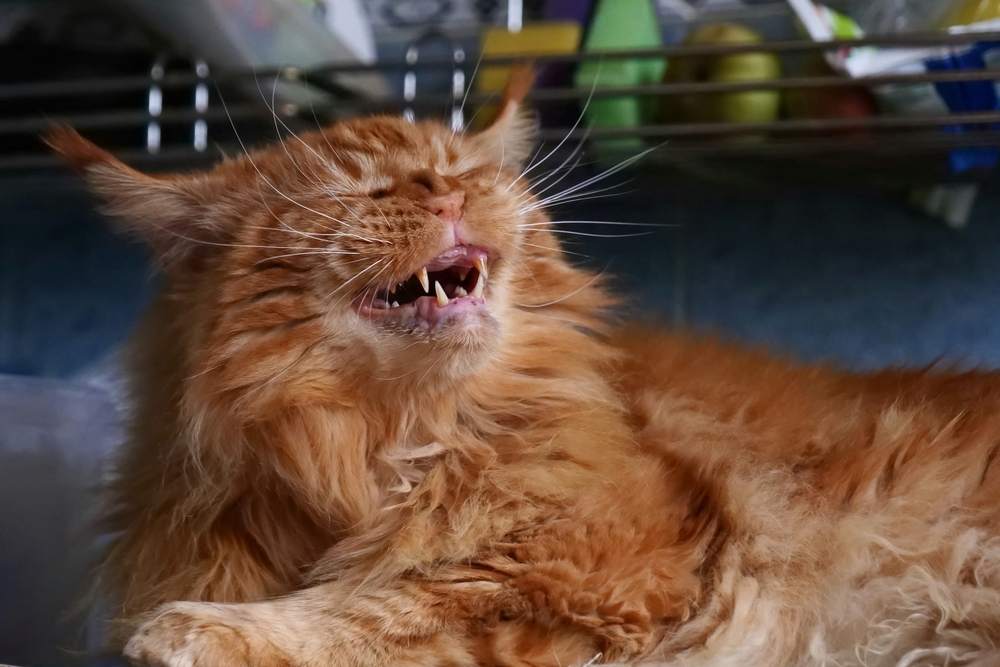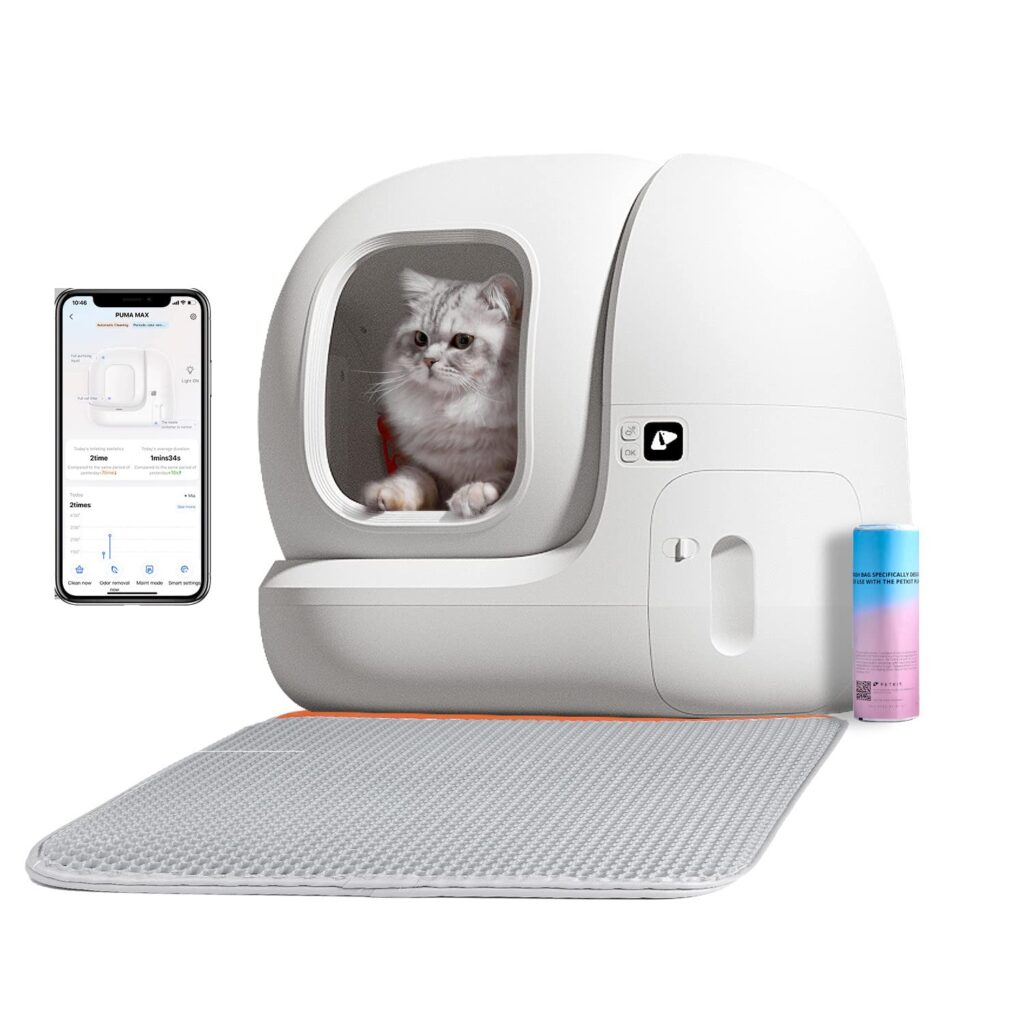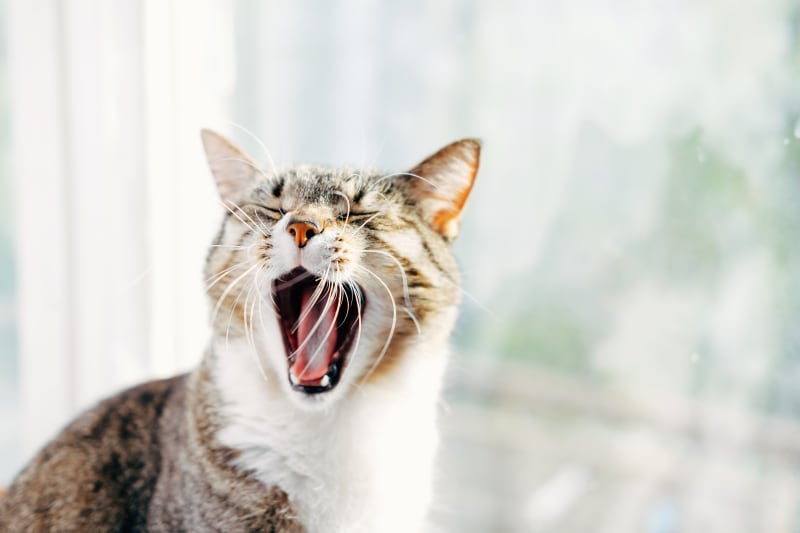Maine Coon cats are not hypoallergenic and may cause sneezing due to allergens they produce. Maine Coon cats, known for their large size and friendly nature, are a popular breed among cat lovers.
However, if you or someone in your household suffers from allergies, you may wonder if Maine Coons are hypoallergenic and won’t trigger sneezing and discomfort. Unfortunately, Maine Coons are not hypoallergenic cats. They produce allergens in the form of saliva, urine, and dander, which can cause allergic reactions in sensitive individuals.
Despite their amazing personalities and stunning appearance, it is important to consider how your allergies may interact with these lovable cats before bringing one home. We will explore the reasons behind Maine Coon allergies and provide tips on managing allergies if you choose to live with a Maine Coon cat.
Contents
- 1 Understanding Hypoallergenic Cats
- 2 Debunking The Myth: Are Maine Coon Hypoallergenic?
- 3 Factors Affecting Allergenicity In Maine Coon Cats
- 4 Coping Strategies For Allergic Individuals
- 5 Other Low Allergenic Cat Breeds To Consider
- 6 Frequently Asked Questions On Are Maine Coon Hypoallergenic? Will They Make You Sneeze?
- 7 Conclusion
Understanding Hypoallergenic Cats
Are Maine Coon Hypoallergenic? This question often comes up when people are considering getting a cat but have allergies. The good news is that Maine Coons, one of the largest domesticated cat breeds, are generally considered to be hypoallergenic.
Understanding Hypoallergenic Cats: Before delving into the specific traits of Maine Coons, it’s important to differentiate between hypoallergenic and non-hypoallergenic cat breeds. Hypoallergenic cats are those that are less likely to cause allergic reactions in sensitive individuals, while non-hypoallergenic cats might trigger allergies.
What causes allergic reactions to cats: Allergies are primarily caused by a protein called Fel d 1, which is found in a cat’s skin, saliva, and urine. When a cat grooms itself, it transfers this protein onto its fur, which can then become airborne and cause allergies in some people.
Exploring hypoallergenic traits in cat breeds: Some cat breeds, like Maine Coons, produce fewer allergens than others. While no cat is completely hypoallergenic, Maine Coons typically have lower levels of Fel d 1 protein, making them a better choice for individuals with allergies. However, it’s important to note that each person’s allergic reaction can vary, so it’s recommended to spend time with a Maine Coon before making a final decision.
Debunking The Myth: Are Maine Coon Hypoallergenic?
The Maine Coon breed has gained a reputation for being hypoallergenic, but is this truly the case? Let’s examine the truth behind this popular belief.
Understanding The Source Of Allergens In Cats
Before we delve into the hypoallergenic nature of Maine Coons, it’s essential to understand what causes allergies in the first place. Most people are allergic to a protein called Fel d 1, which is found in a cat’s saliva, skin, and urine.
Research On Allergen Levels In Maine Coon Cats
Studies have shown that Maine Coons produce lower levels of Fel d 1 compared to other cat breeds. While they aren’t completely hypoallergenic, their reduced allergen levels can make them a better option for individuals with allergies.
However, it’s crucial to note that allergies can vary from person to person. Some individuals may still experience allergic reactions despite being exposed to a Maine Coon cat.
In conclusion, while Maine Coons may be less allergenic than other breeds, it’s important for allergic individuals to spend time with a cat of this breed before making a decision. Consulting with a healthcare professional or allergist is also recommended in order to make an informed choice.
Factors Affecting Allergenicity In Maine Coon Cats
Genetic variations play a significant role in the allergenicity of Maine Coon cats. Different individuals may have varying reactions to these cats, depending on their individual allergies. Some people may find that they are more sensitive to certain allergens, while others may not be affected as much.
Grooming and shedding also impact the levels of allergens present in the environment. Maine Coons are known for their long, fluffy coats, which can trap allergens such as dander and saliva. Regular grooming and shedding can help reduce these allergen levels, making it easier for people with allergies to coexist with these cats.

Credit: cats.com
Coping Strategies For Allergic Individuals
Maine Coon cats are not hypoallergenic, so they may cause allergies and sneezing in allergic individuals. However, there are coping strategies such as keeping the house clean, using air purifiers, and regularly grooming the cat to help minimize allergic reactions.
Allergy Management Techniques For Maine Coon Owners
Living with allergies can be challenging, especially for individuals who love cats. While Maine Coons are not entirely hypoallergenic, there are various strategies that allergic individuals can employ to minimize their symptoms and enjoy the company of these magnificent cats. Here are some useful tips:
| Reducing allergens in the home environment |
|---|
| 1. Regularly clean and vacuum your home to remove pet dander. |
| 2. Consider using air purifiers with HEPA filters to capture allergens. |
| 3. Create cat-free zones in your home, like bedrooms or certain rooms, to reduce exposure. |
Personal care tips for living with an allergic reaction to cats:
- 1. Wash your hands after petting or handling your Maine Coon.
- 2. Avoid touching your face or rubbing your eyes after interacting with the cat.
- 3. Use allergy-friendly bedding and coverings for furniture.
- 4. Consult with an allergist to explore medication options or immunotherapy.
By implementing these coping strategies, allergic individuals can coexist with Maine Coons and minimize the impact of their allergies. Remember to always consult with a healthcare professional for personalized advice.
Other Low Allergenic Cat Breeds To Consider
When looking for a hypoallergenic cat breed, it’s good to explore alternatives to the Maine Coon. While the Maine Coon itself is not considered hypoallergenic, there are a few low allergenic cat breeds that you can consider.
| Breed | Allergenic Level | Characteristics |
|---|---|---|
| Siberian | Low | Known for producing lower levels of the allergen Fel d 1. They have a thick, long coat and are highly adaptable. |
| Balinese | Low | These cats have semi-long hair and produce less Fel d 1. They are affectionate, playful, and intelligent. |
| Russian Blue | Low | These cats have a short, dense coat and are known for producing fewer allergens. They are gentle and make great companions. |
While Maine Coons are not hypoallergenic, these alternative breeds may be a better fit for individuals with allergies. However, it’s important to note that individual reactions to allergens can vary, so spending time with the cat before making a decision is recommended. Ultimately, finding the perfect hypoallergenic cat breed for your needs will depend on your personal preferences and tolerance to allergens.
Frequently Asked Questions On Are Maine Coon Hypoallergenic? Will They Make You Sneeze?
Can Hypoallergenic Cats Cause Allergies?
Hypoallergenic cats can still cause allergies in some people due to a protein in their saliva and skin.
What Cats Are People Less Likely To Be Allergic To?
Some cat breeds are less likely to cause allergies in people due to their low production of allergenic proteins. These breeds include the Siberian, Balinese, and Devon Rex cats.
Do Maine Coons Sneeze?
Yes, Maine Coons can sneeze occasionally like other cats. This can be due to irritants, allergies, or respiratory infections. If sneezing persists or is accompanied by other symptoms, consult a vet for proper diagnosis and treatment.
What Are Cat Allergy Symptoms?
Cat allergy symptoms include sneezing, runny or stuffy nose, itchy and watery eyes, coughing, wheezing, and skin rash.
Conclusion
Maine Coon cats are not hypoallergenic, as they produce allergenic proteins known as Fel d 1. However, it’s important to note that each person’s allergies may react differently to individual cats. While some Maine Coons may trigger allergies, others may not.
If you suffer from allergies, it’s recommended to spend time with a Maine Coon before deciding to bring one into your home. Remember to consult with your allergist for personalized advice.

Katie Lindsey is a passionate cat lover and founder of Cats Solution, a comprehensive resource for all things feline. With a lifelong love for cats and extensive knowledge in their care and behavior, she provides expert advice and solutions to cat owners. Through her website, Katie fosters a supportive community where cat enthusiasts can find guidance and heartwarming stories. A dedicated advocate for animal welfare, Katie also promotes responsible pet ownership and adoption. Join her on this purr-fect journey celebrating the joy of feline companionship.



